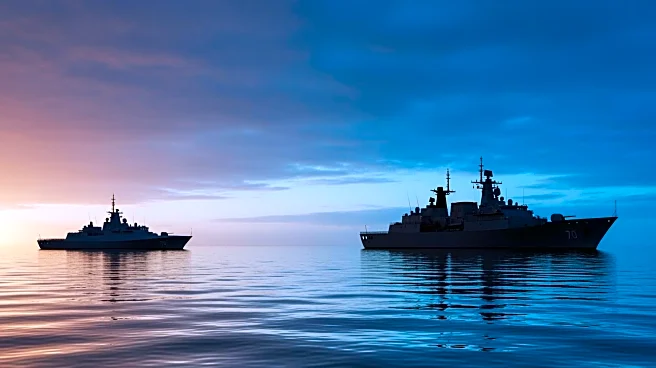What's Happening?
Admiral Daryl Caudle, the top U.S. admiral, is closely monitoring China's rapid naval buildup, which includes the commissioning of its latest aircraft carrier, Fujian, and sea trials of its most advanced
amphibious assault ship. The admiral's visit to Tokyo is part of a 10-day tour of the Asia-Pacific region, emphasizing the importance of cooperation with Asian allies like Japan and South Korea. The visit coincides with Japan's Prime Minister Sanae Takaichi's comments on Taiwan, which have stirred tensions with China.
Why It's Important?
China's naval expansion poses strategic challenges for the U.S. and its allies in the Asia-Pacific region. The buildup of the world's largest navy by China could shift the balance of power in the region, affecting U.S. military strategy and alliances. The situation underscores the importance of maintaining strong defense partnerships with allies like Japan and South Korea to counterbalance China's growing military capabilities.
What's Next?
The U.S. may need to enhance its naval capabilities and strengthen alliances in the Asia-Pacific region to address the challenges posed by China's naval expansion. The situation could lead to increased military cooperation and joint exercises with regional allies to ensure stability and security. The U.S. and its allies may also explore diplomatic avenues to address the tensions and promote regional peace.
Beyond the Headlines
China's naval expansion reflects broader geopolitical shifts in the Asia-Pacific region, with implications for global security and military strategy. The situation highlights the need for strategic foresight and collaboration among allies to address emerging threats and maintain regional stability. The U.S. may need to adapt its military strategy to navigate the complexities of China's growing influence.











